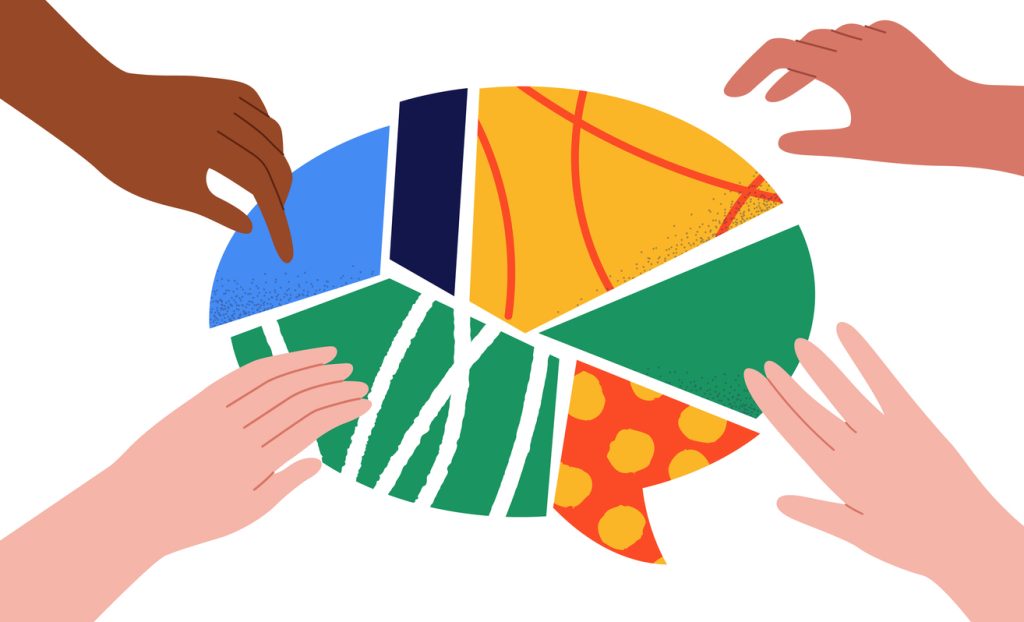|
Getting your Trinity Audio player ready...
|
Social-emotional skills (SES) are the undertones to everything we think, say and do.
In the workplace, SES play a pivotal role in building strong teams, enhancing leadership abilities and promoting a harmonious work environment. At home, they strengthen family bonds and create a supportive atmosphere. In educational settings, they facilitate a learning environment that encourages collaboration and empowers students to thrive academically and socially. In essence, SES are the foundation upon which we build our personal and professional lives, enabling us to navigate challenges while forging meaningful connections with those around us.
Career development professionals are well positioned to help foster recognition and development of social-emotional skills throughout an individual’s career journey to foster personal and professional growth.
Understanding social-emotional skills
The Government of Canada’s Skills for Success framework highlights five SES that are needed in all Canadian occupations: Adaptability, Collaboration, Communication, Creativity & Innovation, and Problem Solving. The Conference Board of Canada describes SES as one’s ability to read and manage emotions, regulate behaviour and build relationships. Social Research Demonstration Corporation stresses the need for workers to be resilient and adaptable, to plan and organize, manage stress and have an openness to learning in order to successfully navigate and advance in the labour market.
The social-emotional skills in the Skills for Success framework were conceptualized as repeatable processes or behaviours, rather than as personality traits or pre-dispositions that one is born with. This situates the SES as measurable, teachable and learnable and moves toward a skills-based language that is helpful for developing curriculum, teaching and assessing SES. While SES are often interdependent and connected, the Skills for Success framework defines SES components and proficiency levels that help to identify curriculum topics and provide measurement indicators.
This article was produced with support from Douglas College, the Mobile App Partner for CERIC’s Cannexus24 conference. Learn more and register to attend the conference – virtually or in-person in Ottawa, Jan. 29-31 – at cannexus.ceric.ca.
The role of career development professionals
A 2018 study from the OECD suggests that SES are correlated to an individual’s cognitive and physical well-being. Skill building is a continuous lifelong learning process and requires consistent practice for improvement. When career development professionals (CDPs) foster SES development with clients, this builds self-esteem and self-efficacy and prepares them for success at work.
So, CDPs encourage individuals to develop their social-emotional skills?
1. Awareness
According to the Conference Board of Canada, developing social-emotional skills begins with sharing clear definitions of what SES are and how they are applied in work, learning and life and transfer between different contexts. A review of occupational profiles can help CDPs and their clients identify the SES required in different occupations.
2. Assessment
CDPs can encourage clients to assess their SES proficiency levels through portfolio development, situational judgement tests, self-assessment questionnaires or other types of SES assessments. Understanding one’s SES proficiency levels relative to what is needed to reach a career goal can help individuals identify which skills they need to build.

3. Building Skills for Success SES
The following are strategies that career professionals can use to help clients and students build each of the social-emotional skills outlined in the Skills for Success framework
Adaptability:
- Teach emotional regulation techniques for handling unexpected situations
- Encourage reflection on past adaptability experiences
- Work on time management and task prioritization
Collaboration:
- Organize group projects or presentations for team building
- Use activities like scavenger hunts or role play scenarios to demonstrate collaboration methods
- Foster teamwork and problem-solving in small groups to achieve a common goal
Communication:
- Develop verbal and non-verbal communication across cultures with role play and discussion
- Teach techniques to show clarity and empathy in conveying information
- Conduct mock interviews
Creativity and Innovation:
- Use real workplace scenarios to identify opportunities to update processes and materials
- Engage in brainstorming activities for creative problem-solving
- Create challenges and competitions to enhance creativity
Problem Solving:
- Use techniques like Root Cause Analysis for problem identification
- Analyze case studies and engage in discussions
- Encourage critical thinking challenges to analyze information, make logical deductions and find appropriate solutions
Explore Canada’s Skills for Success website to find assessments, resources and tools to learn more about SES and improve one’s skills.
The transformative potential of SES
As individuals engage in career development pursuits, it’s vital to recognize that building Skills for Success can significantly enhance employability and professional growth. Career practitioners can play a pivotal role in nurturing these skills by offering guidance in a supportive learning environment. As we continue to embrace a future that demands a diverse skillset, investing in SES becomes a transformative strategy for individuals seeking to build thriving fulfilling careers.




